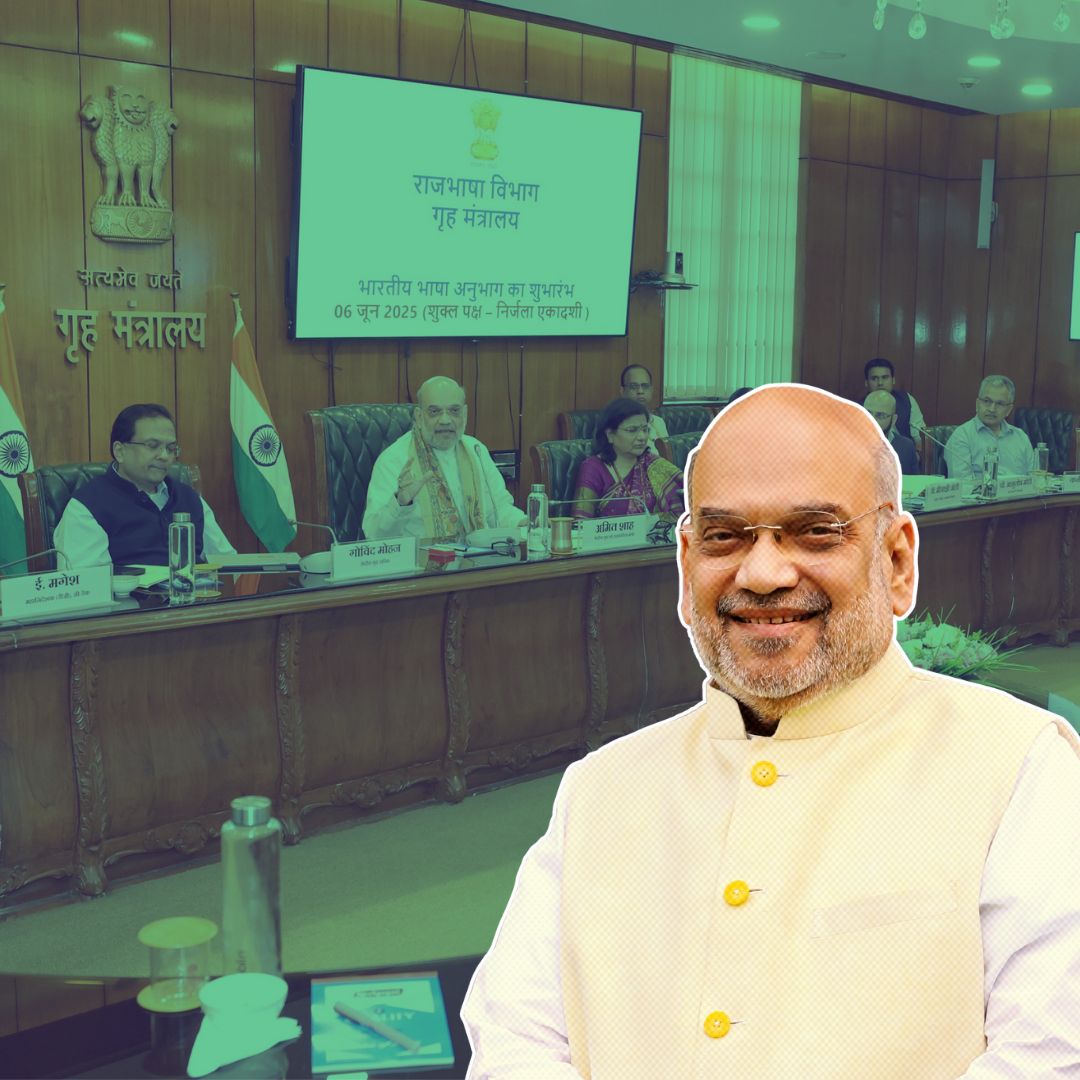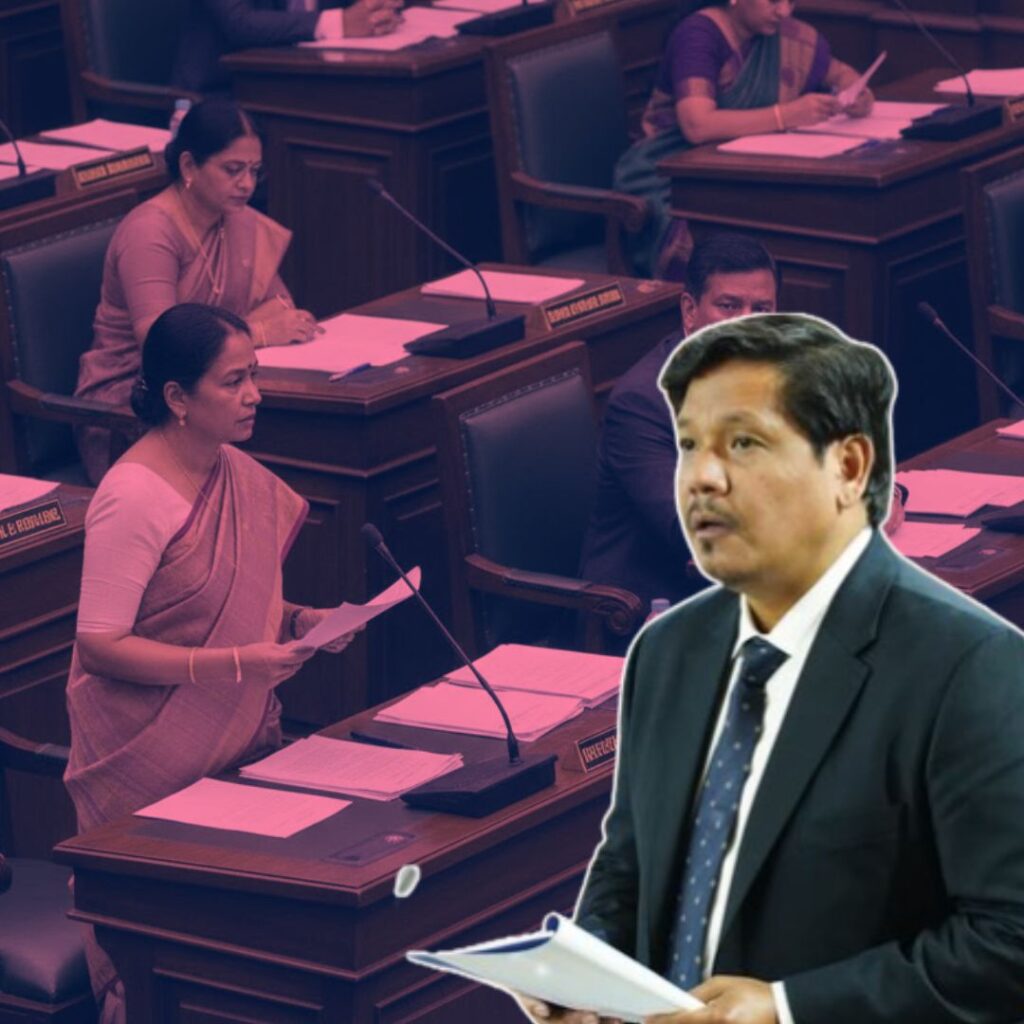Union Home Minister Amit Shah inaugurated the ‘Bharatiya Bhasha Anubhag’ (Indian Languages Section) on June 6, 2025, in New Delhi, a pioneering initiative aimed at reducing the dominance of English in India’s administrative machinery and promoting the use of Indian languages in official communication and decision-making.
The initiative is part of a broader government effort to ‘decolonise’ administrative processes by ensuring that thinking, analysis, and governance happen in citizens’ mother tongues. Supported by a ₹56 crore budget allocation in the Union Budget 2024-25, the new section will leverage advanced language technology developed in partnership with the Centre for Development of Advanced Computing (C-DAC) to facilitate universal translation between Indian languages.
While the move has been welcomed by many as a step towards linguistic inclusivity and cultural empowerment, it has also sparked conversations about the practical challenges of balancing India’s multilingual realities with the continued role of English.
A Milestone for Linguistic Diversity and Cultural Empowerment
At the launch event, Amit Shah emphasised the profound cultural significance of India’s linguistic heritage. He remarked, “Every language of ours is completely connected with other languages and the development of all languages is not possible without each other. All our languages are like rivers combine together to form the Ganga of Indian culture.”
Shah highlighted that the Bharatiya Bhasha Anubhag is designed to provide a structured and technologically advanced platform to ensure that all Indian languages receive equal attention and respect in the administrative domain. The Home Minister stressed that the initiative would help decentralise the dominance of English and Hindi by enabling official correspondence and decision-making in regional languages, thus making governance more accessible and meaningful to the common citizen.
Secretary Anshuli Arya elaborated on the technology behind the initiative, explaining that the system will allow, for instance, a communication written in Tamil by a state chief minister to be seamlessly translated and replied to in Tamil, preserving linguistic authenticity while fostering inter-state and Centre-state dialogue.
Bridging Historical Language Gaps in Indian Administration
The prominence of English in Indian administration is a colonial legacy that has persisted since independence, often sidelining regional languages and creating barriers for non-English speakers. This linguistic imbalance has long been a subject of debate, with many advocating for greater use of mother tongues in education, governance, and public life.
The National Education Policy (NEP) 2020 marked a significant policy shift by promoting mother tongue-based education, and the Bharatiya Bhasha Anubhag represents a natural extension of this vision into governance. The ₹56 crore budget allocation underscores the government’s commitment to this cause.
By facilitating universal translation and enabling official communication in native languages, the initiative aims to foster inclusivity, reduce linguistic alienation, and strengthen the cultural fabric of the nation. Experts suggest that this could also enhance administrative efficiency by allowing officials to deliberate and decide in languages they are most comfortable with, potentially improving policy outcomes.
The Logical Indian’s Perspective
The launch of the Bharatiya Bhasha Anubhag is a commendable step towards embracing India’s linguistic plurality and making governance more inclusive and representative. Language is not merely a communication tool but an intrinsic part of identity, culture, and community.
By elevating regional languages within the administrative framework, India honours its rich cultural mosaic and takes a stride towards linguistic justice. However, this transition must be managed thoughtfully to ensure that linguistic pride does not become a source of division, and that practical communication needs—especially in a diverse and interconnected country—are met effectively.
The Logical Indian believes that fostering dialogue, empathy, and mutual respect among speakers of different languages is crucial to this endeavour. As India embarks on this linguistic journey, how can citizens and policymakers work together to ensure that all voices—regardless of language—are heard, valued, and respected in shaping the nation’s future?
आज राजभाषा विभाग के ‘भारतीय भाषा अनुभाग’ का शुभारंभ किया। यह अनुभाग भारत की भाषाई विविधता को समाहित करते हुए सभी भाषाओं को एक सशक्त और संगठित मंच प्रदान करेगा, जिससे न सिर्फ भारतीय भाषाएँ, बल्कि भारतीय संस्कृति और भी मजबूत होगी। मेरा मानना है कि इस विभाग के शुभारंभ के बाद राजभाषा… pic.twitter.com/wnLUhXVpMP
— Amit Shah (@AmitShah) June 6, 2025











